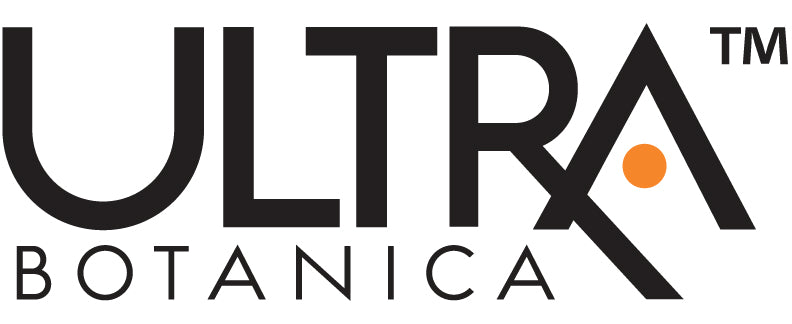We often hear about increasing "lifespan"—living longer. But what good is a long life if you're not healthy enough to enjoy it?
This brings us to healthspan vs lifespan, a crucial difference between simply living longer and experiencing a life filled with vitality and well-being. As the saying goes, it's not enough to simply add more years to your life. Our objective must be to add more life to those years.
With lifespan, people are trying to add years to their life. With healthspan, they're trying to add life to those years!
Let's take a deeper look at healthspan vs. lifespan.
What is Life Span?
Lifespan is the length of time a person lives from birth to death.
At the turn of the 20th century, the average lifespan was about 47 years. By 1959, U.S. life expectancy had risen to 69.9 years, and by 2017 U.S. life expectancy was 78.6 years.
What is Health Span?
Healthspan is the number of years your quality of life is robust, and you remain free of ill health. It's not quite as easy to put a number on healthspan. It's the number of years you're healthy, but it's simply not as black and white as lifespan is.
The average age of American lifespan is about 79 years, but the American healthspan is just 63 years. That's a long time living with poor health!
Healthspan vs Lifespan: More Than Just Semantics
Lifespan refers to the total number of years a person lives. It's a straightforward measurement, starting from birth and ending at death.
But healthspan... that's a whole different story. It gets personal because it focuses on the quality of those years, those where you're thriving, not just surviving.
Healthspan represents the portion of your life years spent in good health, free from serious age-related diseases and disabilities.
The Silent Thief: Cellular Senescence
Imagine your cells as tiny factories, diligently carrying out their tasks to keep you functioning at your best. Now, picture some of those factories slowly grinding to a halt—becoming worn down, a little rusty.
This is a simplified way to look at cellular senescence, a natural process that happens as we age, where cells stop dividing but don't die off like they should.
Instead, they hang around, releasing substances that can cause inflammation and potentially damage surrounding tissues.
Scientists believe this build-up of senescent cells plays a significant role in age-related decline and conditions such as frailty, heart disease, and even some cancers.
This understanding has paved the way for exciting research into therapies targeting cellular senescence, aiming to delay the onset of age-related diseases and improve the average lifespan.

Can Your Genes Tell You How Long You'll Stay Healthy?
Wouldn't it be incredible if a simple genetic test could provide a crystal ball into our health destiny?
While it's not quite that straightforward, our understanding of the human genome is evolving. We are uncovering how our genes can influence our healthspan and life expectancy.
Genetics undeniably plays a role in our overall health and susceptibility to certain conditions. Remember this: lifestyle choices carry immense weight!
For example, studies have shown that adhering to a Mediterranean diet has a positive impact on overall well-being and longevity.
This emphasizes that while we may inherit certain genetic predispositions, we have a significant degree of control over how they manifest through our lifestyle choices. This understanding empowers us to take proactive steps towards a longer and healthier life.
But what about new approaches and therapies on the horizon? Could these interventions disrupt aging at a cellular level to improve healthspan vs. lifespan?
Pushing Boundaries: Emerging Therapies
Research into novel therapies targeting the aging process itself—like those presented at the UK SPINE network's June 2022 conference — are generating cautious excitement.
These advancements hold the promise of extending not only our lifespan but, more importantly, our healthspan.
Some examples of emerging therapies include:
- Senolytics: These agents aim to selectively eliminate senescent cells from the body. While research is ongoing, some animal studies suggest these compounds might help alleviate age-related diseases. This includes natural compounds such as fisetin and beta glucans found in SenUltra... They help to eliminate senescent cells from the body without drugs.
- Rapamycin: Originally developed as an immunosuppressant, researchers are investigating its potential for slowing aging processes. Clinical trials in humans are showing promising results in areas like muscle function. This has led scientists to investigate its potential for improving healthspan and addressing age-related decline.
- Spermidine: A natural compound, studies suggest it might enhance immune response, extend longevity, and improve health span at multiple levels. This is particularly significant in the context of an aging population, where maintaining a robust immune system is crucial for longevity and healthy aging.
These new developments certainly spark hope. This field is still in its early stages, and there's much we're still learning. But several natural compounds have been discovered that selectively eliminate senescent cells from the body... including wheat germ extract, strawberry extract, spermidine, ginger, apple extract, and more.
What works in mice may not directly translate to humans, and rigorous clinical trials are necessary to determine the safety and efficacy of these therapies in humans.

Taking Charge of Your Healthspan
Everyone wants the magic bullet to being healthy and well, into old age. But there really isn't a magic bullet. Genetics can help. But you can also outlive your genetics by making healthy lifestyle choices.
There are many commonalities around lifestyle that could delay the onset of most serious diseases.
It seems like common sense (and it is!), but maintaining a healthy balanced diet with moderate, regular exercise and forgoing smoking and drinking alcohol is the surest way to promote your healthspan and limit disease onset.
This is the empowering part. Even without high-tech therapies, we can make a huge difference in influencing our own healthspan.
Factors like good sleep hygiene, healthy aging practices, nutritious diet, exercise, stress management, and positive social connections all have a direct beneficial impact on our overall well-being.
And if you're a day over 40, you owe it to yourself to start now. Don't wait till you get older. Now is the time to promote healthy aging and enhance your chances of enjoying a longer healthspan.
Nutrition: Your Cells' Fuel
Your cells need the right fuel to operate at their best. That's where smart dietary choices come in.
Eat a balanced diet. A diet rich in fruits, vegetables, whole grains, and lean protein supports optimal cell function.
Studies show that a nutritious diet is linked to a lower risk of chronic diseases, including heart disease, stroke, type 2 diabetes, and some types of cancer.
Enjoy healthy fats. Fatty fish rich in omega-3s and sources like avocados and olive oil are great choices. These fats have numerous health benefits, including reducing inflammation, improving heart health, and supporting brain function.
They play a crucial role in maintaining cellular integrity and reducing the risk of age-related diseases.
Minimize processed foods. Highly processed foods loaded with sugar, preservatives, and unhealthy fats damage your cells and contribute to chronic diseases.
These foods often lack essential nutrients and can contribute to inflammation, oxidative stress, and an increased risk of chronic diseases.

Exercise: Your Cells' Fountain of Youth
It's simple. Moving your body isn't just good for muscles and bones, it benefits your cells on a microscopic level, literally helping you achieve healthy aging.
Regular physical activity has been shown to improve cardiovascular health, reduce the risk of chronic diseases, improve mental health, boost mood, and enhance cognitive function.
Aim for regular, moderate-intensity activity such as brisk walking, cycling, or swimming.
Add some strength training. Strength training boosts metabolism, cuts body fat, amps up bone density, sharpens mental health, and helps regulate blood sugar.
Lifting weights regularly cranks up heart health and builds muscle for a stronger you. It’s a total game-changer!
When you stay consistent, these activities help to maintain muscle mass, reduce the risk of age-related decline, and greatly influence health span.

Rest: When Your Cells Regenerate
When you prioritize quality sleep, you give your body a chance to repair and regenerate at a cellular level. Sleep is critical for maintaining hormonal balance, regulating metabolism, and supporting a healthy immune system.
While you rest, essential processes occur that keep you healthy and functioning properly, including muscle repair, and tissue regeneration.
Connect: It's More Than Just Socializing
Did you know loneliness is as damaging to your health as smoking? It's a startling comparison that highlights how social connections play a much more significant role in our overall health than we might realize.
It's more than just company; it's about stress reduction, a sense of belonging, and even boosting the immune system.
Strong social connections have been linked to better mental and physical health outcomes, including reduced stress levels, lower blood pressure, and improved immune function.
This highlights the importance of nurturing relationships, engaging in social activities, and building a supportive community for a longer and healthier life.
It all ties back to that goal—extending not just your years but your healthy, active, enjoyable years. Because ultimately, that's the true measure of a life well-lived.
Conclusion
So, where do we stand in this conversation about healthspan vs lifespan? We've traveled from cellular changes and genetic whispers to exciting therapeutic possibilities and the foundational pillars of lifestyle choices.
Ultimately, the pursuit of longevity should go hand in hand with the pursuit of health and vitality.
We can influence how our body ages. Every step you take—from eating your greens to sharing a laugh with a loved one—has the potential to shift your health trajectory. This is about focusing on healthspan today.
The exciting part? As we learn more about the aging process, who knows what possibilities might unfold to extend those vital, thriving years even further!

Frequently Asked Questions
What is healthspan vs lifespan?
Healthspan represents the portion of your life spent in robust health, free from serious age-related diseases and disabilities. Lifespan refers to the total number of years a person lives. It's a measurement, starting from birth and ending at death.
Do your genes determine your destiny?
Genetics definitely play a role in your health and susceptibility to certain conditions. But your lifestyle choices are your superpower when it comes outliving your genetics and improving healthspan vs. lifespan.
What therapies extend both lifespan and healthspan?
Research into therapies targeting the aging process, such as senolytics, rapamycin, and spermidine, are generating cautious optimism.
While some animal studies show promising results in reducing age-related decline, human trials are still in the early stages. These therapies hold the potential to not only extend lifespan but improve healthspan as well.
How can I improve my healthspan naturally?
You can enhance your healthspan vs. lifespan by focusing on key lifestyle choices. Maintaining a balanced diet rich in fruits, vegetables, whole grains, lean meats, and healthy fats is essential for cellular health and disease prevention.
Along with regular exercise, good sleep hygiene, stress management, and nurturing social connections, these habits can delay the onset of serious diseases.


Share:
Understanding Sepsis: Symptoms, Risks, and Prevention Tips
Calories In Calories Out: The Complex Path to Weight Loss